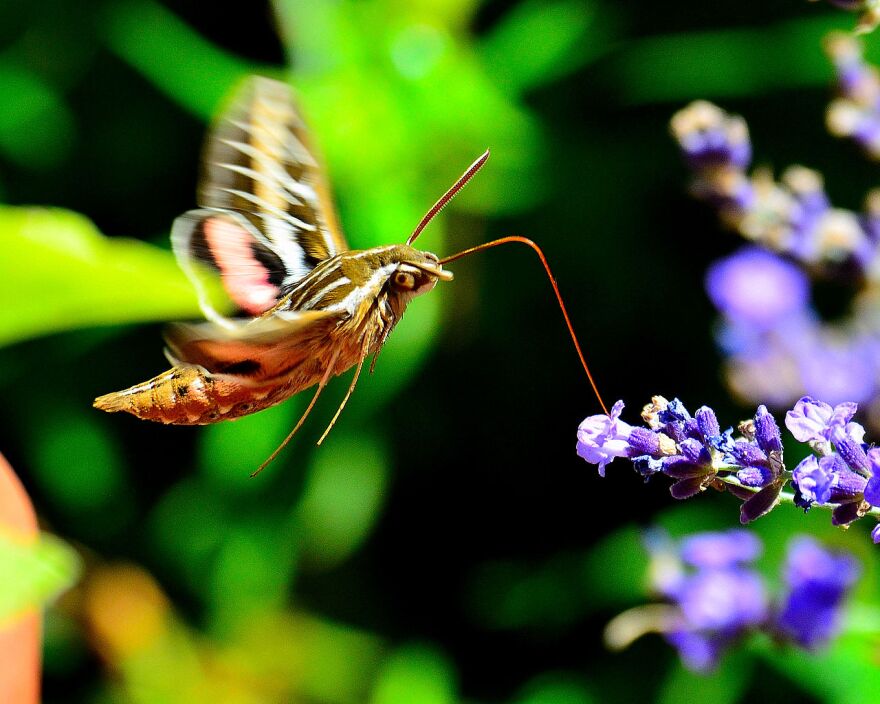It may be early in the summer, but Hummingbird Moths are making their appearance in Colorado gardens. According to CSU entomologist Whitney Cranshaw, northern Colorado could see an abundance of Hummingbird Moths this year.
Also known as Sphinx Moths, Hummingbird Moths get their name from their fast moving wings. Their plump, fuzzy body and large wingspan cause them to stand out over other moths. Their protruding mouth part sucks flower nectar.
Recent reports say the caterpillars of the White Lined Sphinx Moth are busy on the eastern plains, feeding heavily on Evening Primrose, portulaca and wild grape leaves. This diet allows them to grow 3 inches long. They will burrow into the soil to pupate and in about three weeks the moth will emerge. This is one of the few daylight sphinx moths, we’ll see them feeding on nectar drawn from tubular flowers such as penstemon.
This moth species will spend part of the summer in northern Colorado before they will migrate south through the season to chase the warmer climates.
While Hummingbird Moths pollinate our flowering plants as they zip through our gardens, some of their offspring can wreak havoc on our vegetables. The Tomato Hornworm can devour a small tomato plant in a single day.
These garden pests are hard to find until the damage is done. It’s a case of you are what you eat. Tomato Hornworms are the color and shape of a wavy tomato leaf. A gardener needs to be very observant to find a Tomato Hornworm before the damage is done.
Once they pupate into an evening flying Sphinx Moth, they begin to lose their reputation as a pest. Attracted to white or light colored flower, they hover over nicotiana or petunias.
Hornworms are easy to control in the garden. Simply pick them off of the plant and send them on their way. There is also an organic BT application. We sacrifice a couple tomato plants to the hornworms so that when they become adult moths, they became a little garden helper.






